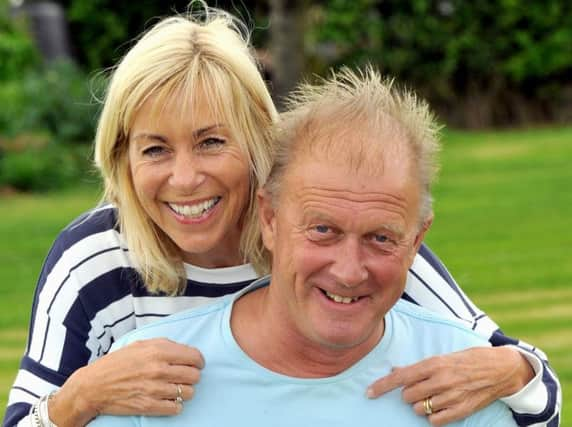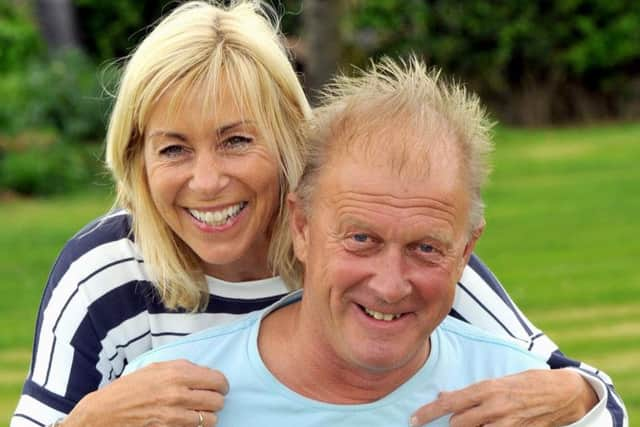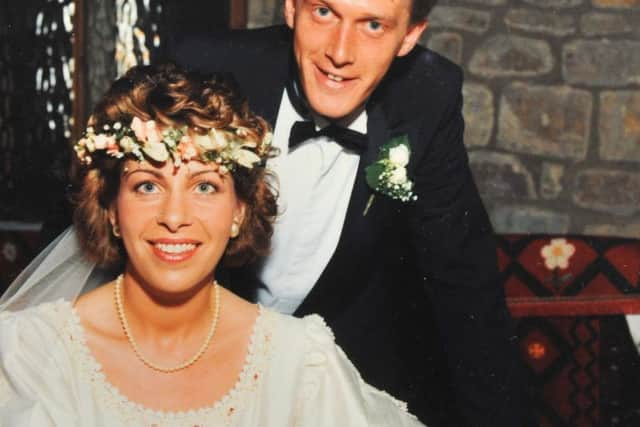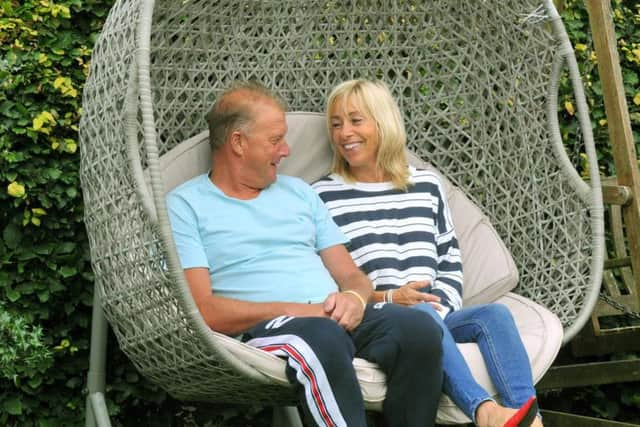Yorkshire father's hidden battle as he reached depth's of despair after heart attack


He had a heart attack at the age of 28, developing an abnormal heart rhythm as a result. The hidden toll it has taken on his mental health has haunted him for over three decades.
Speaking out today as he backs a campaign for support, the father-of-two says there are so many people facing the same reality.
Advertisement
Hide AdAdvertisement
Hide AdAt his lowest ebb, he reveals, he came close to suicide. He would sit for hours at the end of his bed, silent tears rolling down his face.


He was unable to eat, or sleep, or escape the 'black hole' of severe depression.
Only when people are able to talk freely about their fears, he warns, can that weight of worry be eased.
"The doctors could fix my heart, but it was the mental side that was struggling," says the now 60-year-old of North Yorkshire.
Advertisement
Hide AdAdvertisement
Hide Ad"I've always said they could give me a massive heart attack, break every bone in my body, and it wouldn't get anywhere near mental illness. You just feel completely worthless."


Impact over a lifetime


At their redbrick cottage in the picturesque village of Beeford near Driffield, Mr Young's wife Sally sits beside him as he shares his story.
The couple raised their two boys here, Jack, now 28, and Sam, 32. Throughout, says Mr Young, Sally has been his rock.
They hadn't been married long when he had a massive heart attack at the age of 28. He had no idea the impact his heart attack would have.
Advertisement
Hide AdAdvertisement
Hide AdOn a skiing holiday, Mr Young had his first panic attack. Then, playing badminton in 2004, he had his second heart scare.
He was to be fitted with a pacemaker, to regulate his heartbeat, and a defibrillator, to shock it back into shape when this didn't work.
It wasn't long before he was living in fear. A trip to the supermarket would shake him to his knees, terrified in case a shock was coming. It would go off in the bath, or as he lay in bed.
Every time it did go, Mr Young would be set back, unable to drive for six months or work in his job as an electrical lineman.
Advertisement
Hide AdAdvertisement
Hide Ad"It was all about the consequences," he says. "Would I be able to work, support my kids and family? That was massive.
"I would come home on a night, and I just wasn't there. I was in a black hole. I couldn't get out of it for weeks. I couldn't eat, I couldn't sleep."
Support
The family turned to their GP for help, but there was a six month wait for an appointment for support. Eventually, they paid privately for counselling.
"More help must be readily available," says Mrs Young. "We were lucky, a lot of people wouldn't have been able to afford it. They might not have known where to start."
Advertisement
Hide AdAdvertisement
Hide AdToday, the couple are speaking out in support of the British Heart Foundation's campaign calling for better access to emotional and psychological support.
More than half of people living with heart and circulatory diseases have experienced sadness, anxiety or depression, the foundation has found.
"I've always been the joker," says Mr Young. "I always looked well, but people don't know what's in your head.
"At my lowest ebb, which was a lot of years ago, I was doing some work on a pylon. I'd just gone back to work and I was just so close to jumping, just walking to the end and going.
Advertisement
Hide AdAdvertisement
Hide Ad"A couple of days after that, I got in touch with a counsellor from Scarborough. She saved my life. I was only in there for three quarters of an hour.
"The problem starts with the illness," he adds. "All you are trying to do is get better. All you're doing is fighting to overcome it.
"You almost don't think about the mental health side of things. The best thing you can do it talk to other people who have been through the same."
